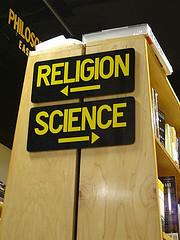
In his work Natural Theology, philosopher William Paley proposed his famous “watchmaker” argument for the existence to God. According to Paley, just as the intricate design of a watch implies a designer, so too the intricate design of the universe implies the existence of a cosmic designer. He pointed to the fine-tuning of natural systems like the eye as examples of his theory.
Yet, with the advent of evolutionary theory, entirely plausible explanations for the emergence of the eye can be (and have been) proposed. Does evolution, then, remove the usefulness of biological fine-tuning in the discussion of natural theology?
In an 1871 lecture “The Natural Theology of the Future”, English theologian Charles Kingsley discussed how evolution did not bring about an end to natural theology. Arguments like Paley’s, he maintained, came about from a belief that God made all things in the same way a watchmaker made each watch he sold. However, with the advent of evolutionary theory, modern theologians could consider a God who was “much wiser than even that,” a God who chose to “make all things make themselves.” This new view of natural theology, promoted by Kinglsey, looked at God as continually present and active in the slowly evolving natural world, which he bestowed with the capacity to evolve.
Kingsley, in fact, was one of the first to praise Darwin’s work On the Origins of Species, after he received an advanced review copy. Darwin included an edited version of Kingsley’s own words in a later edition of his book:
A celebrated author and divine has written to me that “he has gradually learnt to see that it is just as noble a conception of the Deity to believe that He created a few original forms capable of self-development into other and needful forms, as to believe that He required a fresh act of creation to supply the voids caused by the action of His laws.”
For more on Charles Kingsley and how evolution can fit into natural theology, be sure to read the transcript from Alister McGrath’s fourth Gifford Lecture, “The Enigmas of Evolutionary Biology”, given February 19, 2009 at King’s College in London.

